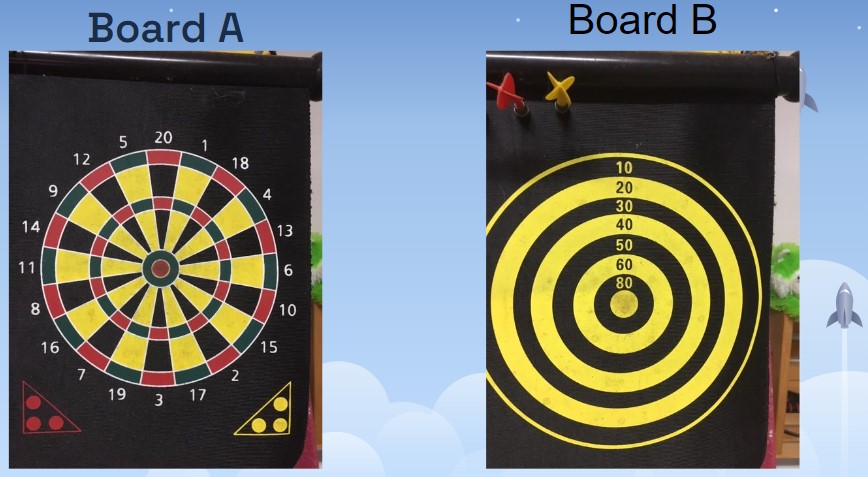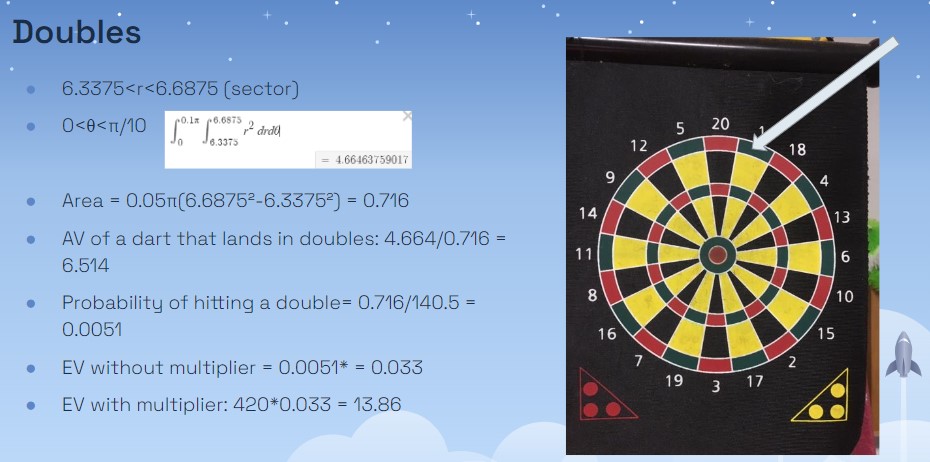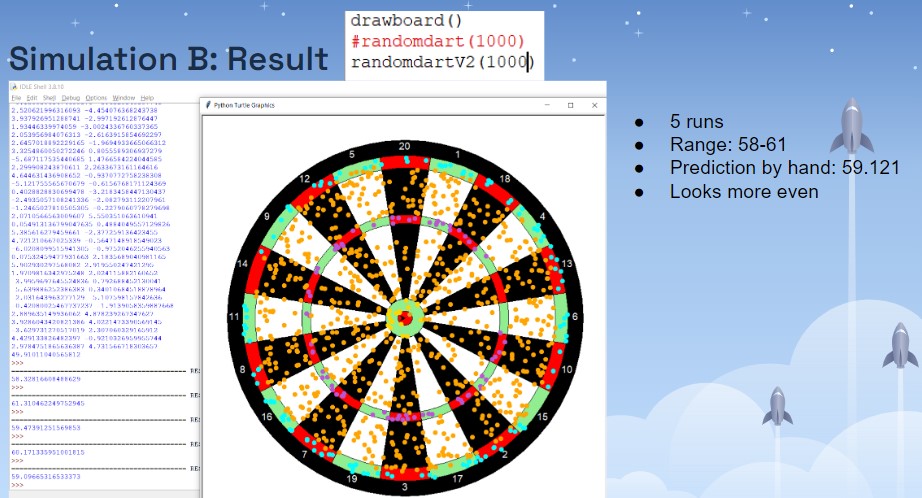Presentation Link (click me!)
Date: December 2021
I programmed this for my final project for in Calculus 3. For this project,
I asked myself what would happen if I combined two of my dartboards at home,
which would in theory help me as a novice dart thrower, since darts that are
closer to the outside receive a higher multiplier. I first computed the expected
value of a throw by hand through integration and adding up all segments. I then
computed the expected value of a throw via simulation. One of my favorite memories
was sitting down at my laptop and working for 3-4 hours straight to draw the dartboard.
Overall, I was happy to find that my calculation by hand got pretty close to the
computer's Monte Carlo method (avg 1000 random throws). However, I did find that if a
skilled player simply aimed for a section of a board, they would achieve much better
results on average. Thus, skill will always matter; some boards just show it more.


